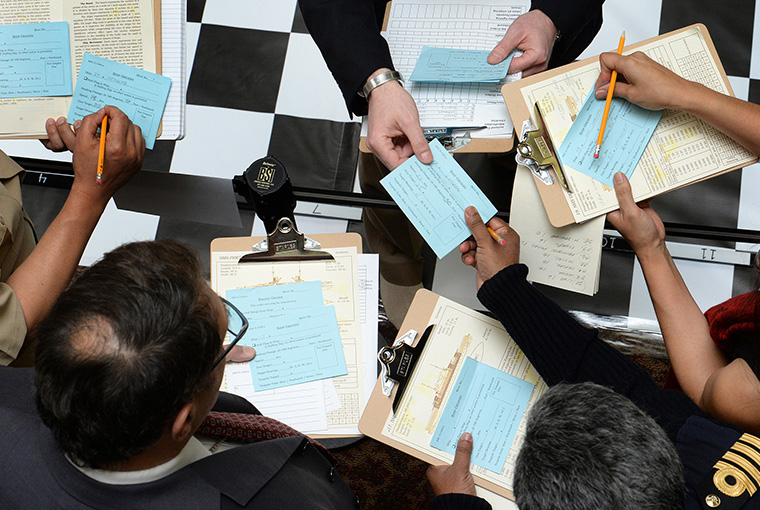International Crisis War Game: Cyber and Emerging Technologies

About this Event
Event Information
Public Affairs Office
This event is not open to the general public
This event is for Naval War College students, faculty and staff.This war-game series integrates senior leaders in private industry, the military and government from around the world to provide insights on the impact of cyber operations on international stability and U.S. national security. Hosted by the Cyber and Innovation Policy Institute, the event will look at the role that emerging technologies like cyber operations play in crisis decision-making and how Cold War paradigms of deterrence and crisis escalation will apply in a world with new capabilities and vulnerabilities. This exercise is intended to help inform the implementation of the National Defense Strategy, the National Security Strategy, the Nuclear Proliferation Review and the Defense Cyberspace Strategy.
International Crisis War Game Background
This unclassified war game will provide insights into the relationship between new technologies, domestic politics, conventional military capabilities and nuclear threats. It is a part of a larger set of games being run by U.S. Naval War College with international participants, with an eye toward comparing behaviors across countries and cultures during crises.
Players will simulate decision-making roles in a national security cabinet, such as head of state, foreign minister, defense minister, economic advisor and intelligence advisor. Participants are given a hypothetical crisis scenario and a briefing on their country’s capabilities and vulnerabilities. Players are then divided into teams of five to eight participants, with each team representing a cabinet. Over two hours, each will generate priority objectives and courses of action to deal with the crisis. The war game culminates in the development of a whole-of-government response plan. After gameplay is over, the response plans of each team are compared by Naval War College scholars in order to understand how key elements of cyber operations and crisis characteristics impact international stability.
Most Recent
8:00 a.m.
U.S. Naval War College, 686 Cushing Rd, Newport, RI 02841
U.S. Naval War College, 686 Cushing Road, Newport, RI 02841
U.S. Naval War College, 686 Cushing Road, Newport, RI 02841
8:00 a.m.
U.S. Naval War College, 686 Cushing Road, Newport, RI 02841
U.S. Naval War College, 686 Cushing Rd, Newport, RI 02841
